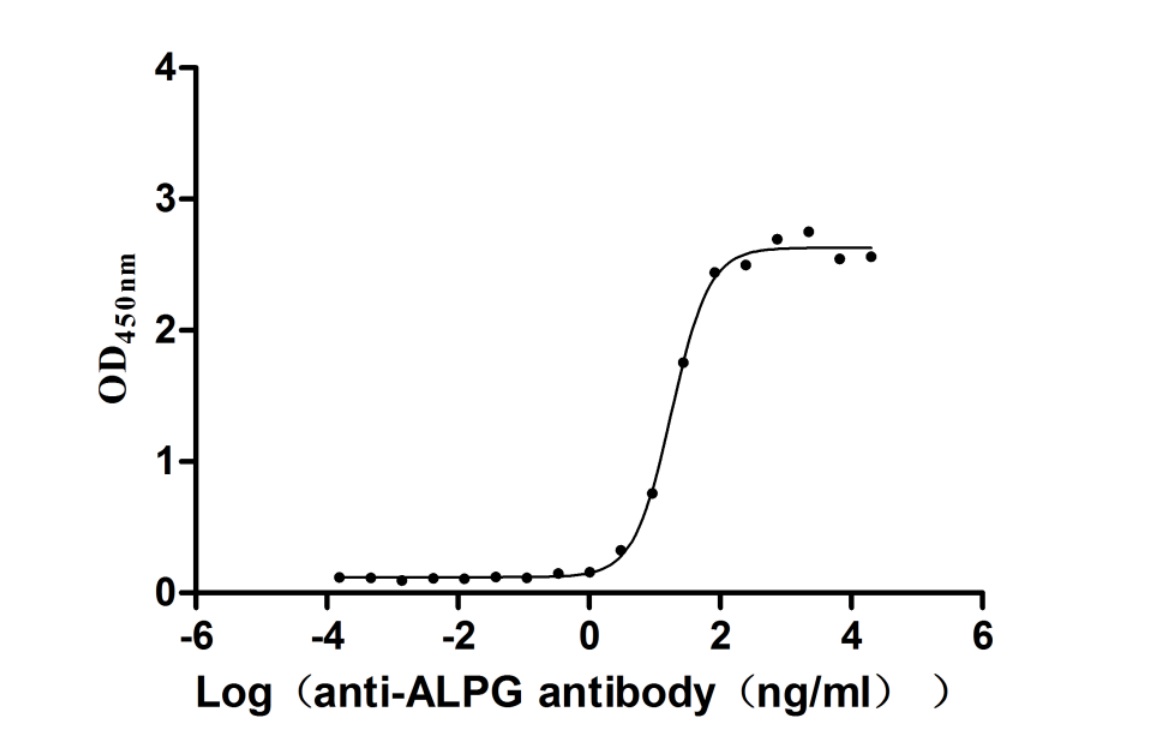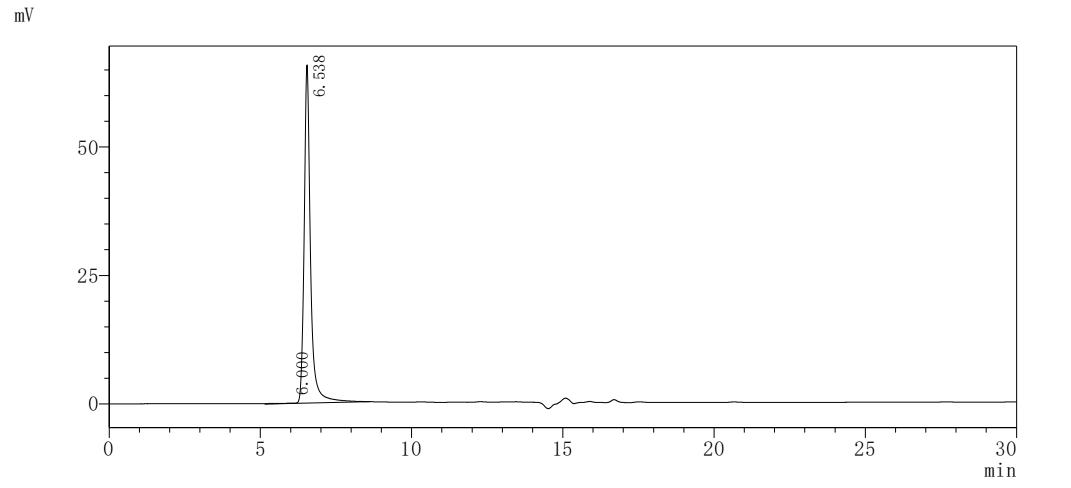Recombinant Mouse Ubiquitin carboxyl-terminal hydrolase CYLD (Cyld), partial
In Stock-
货号:CSB-EP773899MO
-
规格:¥2328
-
图片:
-
其他:
产品详情
-
纯度:Greater than 90% as determined by SDS-PAGE.
-
基因名:
-
Uniprot No.:
-
种属:Mus musculus (Mouse)
-
蛋白长度:Partial
-
来源:E.coli
-
分子量:50.6 kDa
-
表达区域:579-952aa
-
氨基酸序列GLEIMIGKKKGIQGHYNSCYLDSTLFCLFAFSSALDTVLLRPKEKNDIEYYSETQELLRTEIVNPLRIYGYVCATKIMKLRKILEKVEAASGFTSEEKDPEEFLNILFHDILRVEPLLKIRSAGQKVQDCNFYQIFMEKNEKVGVPTIQQLLEWSFINSNLKFAEAPSCLIIQMPRFGKDFKLFKKIFPSLELNITDLLEDTPRQCRICGGLAMYECRECYDDPDISAGKIKQFCKTCSTQVHLHPRRLNHSYHPVSLPKDLPDWDWRHGCIPCQKMELFAVLCIETSHYVAFVKYGKDDSAWLFFDSMADRDGGQNGFNIPQVTPCPEVGEYLKMSLEDLHSLDSRRIQGCARRLLCDAYMCMYQSPTMSLYK
Note: The complete sequence including tag sequence, target protein sequence and linker sequence could be provided upon request. -
蛋白标签:N-terminal 10xHis-tagged and C-terminal Myc-tagged
-
产品提供形式:Liquid or Lyophilized powder
Note: We will preferentially ship the format that we have in stock, however, if you have any special requirement for the format, please remark your requirement when placing the order, we will prepare according to your demand. -
缓冲液:If the delivery form is liquid, the default storage buffer is Tris/PBS-based buffer, 5%-50% glycerol. If the delivery form is lyophilized powder, the buffer before lyophilization is Tris/PBS-based buffer, 6% Trehalose.
-
复溶:We recommend that this vial be briefly centrifuged prior to opening to bring the contents to the bottom. Please reconstitute protein in deionized sterile water to a concentration of 0.1-1.0 mg/mL.We recommend to add 5-50% of glycerol (final concentration) and aliquot for long-term storage at -20℃/-80℃. Our default final concentration of glycerol is 50%. Customers could use it as reference.
-
储存条件:Store at -20°C/-80°C upon receipt, aliquoting is necessary for mutiple use. Avoid repeated freeze-thaw cycles.
-
保质期:The shelf life is related to many factors, storage state, buffer ingredients, storage temperature and the stability of the protein itself.
Generally, the shelf life of liquid form is 6 months at -20°C/-80°C. The shelf life of lyophilized form is 12 months at -20°C/-80°C. -
货期:3-7 business days
-
注意事项:Repeated freezing and thawing is not recommended. Store working aliquots at 4°C for up to one week.
-
Datasheet & COA:Please contact us to get it.
相关产品
靶点详情
-
功能:Deubiquitinase that specifically cleaves 'Lys-63'- and linear 'Met-1'-linked polyubiquitin chains and is involved in NF-kappa-B activation and TNF-alpha-induced necroptosis. Negatively regulates NF-kappa-B activation by deubiquitinating upstream signaling factors. Contributes to the regulation of cell survival, proliferation and differentiation via its effects on NF-kappa-B activation. Negative regulator of Wnt signaling. Inhibits HDAC6 and thereby promotes acetylation of alpha-tubulin and stabilization of microtubules. Plays a role in the regulation of microtubule dynamics, and thereby contributes to the regulation of cell proliferation, cell polarization, cell migration, and angiogenesis. Required for normal cell cycle progress and normal cytokinesis. Inhibits nuclear translocation of NF-kappa-B. Plays a role in the regulation of inflammation and the innate immune response, via its effects on NF-kappa-B activation. Dispensable for the maturation of intrathymic natural killer cells, but required for the continued survival of immature natural killer cells. Negatively regulates TNFRSF11A signaling and osteoclastogenesis. Involved in the regulation of ciliogenesis, allowing ciliary basal bodies to migrate and dock to the plasma membrane; this process does not depend on NF-kappa-B activation. Ability to remove linear ('Met-1'-linked) polyubiquitin chains regulates innate immunity and TNF-alpha-induced necroptosis: recruited to the LUBAC complex via interaction with SPATA2 and restricts linear polyubiquitin formation on target proteins. Regulates innate immunity by restricting linear polyubiquitin formation on RIPK2 in response to NOD2 stimulation. Involved in TNF-alpha-induced necroptosis by removing linear ('Met-1'-linked) polyubiquitin chains from RIPK1, thereby regulating the kinase activity of RIPK1. Removes 'Lys-63' linked polyubiquitin chain of MAP3K7, which inhibits phosphorylation and blocks downstream activation of the JNK-p38 kinase cascades.
-
基因功能参考文献:
- Loss of CYLD catalytic activity causes impaired DNA damage-induced p53 stabilization and activation in epithelial cells and sensitizes mice to chemical carcinogen-induced intestinal and skin tumorigenesis. PMID: 27561390
- The present results support the involvement of CYLD in the regulation of NF-kappaB inflammatory signaling induced by elevated glucose, implicating CYLD as a potential therapeutic target of diabetic nephropathy . PMID: 29259980
- the role of CYLD in development, tissue homeostasis, and tumorigenesis PMID: 28750888
- Findings provide physiological insight into the ciliary role of the CYLD/HDAC6 axis and suggest a functional interplay between these two proteins in ciliary homeostasis. PMID: 27028867
- Thrombin-mediated MALT1 protease activation triggers acute disruption of endothelial barrier integrity via CYLD cleavage. PMID: 27681433
- SPATA2 has been described as a previously unrecognized factor in the linear ubiquitin chain assembly complex-dependent signaling pathways that serves as an adaptor between HOIP and CYLD, thereby enabling recruitment of CYLD to signaling complexes. PMID: 27545878
- TLR4 activates CASPASE-8 to cleave and remove the deubiquitinase cylindromatosis (CYLD) in a TRIF- and RIPK1-dependent manner to disable necroptosis in macrophages. PMID: 27264187
- CYLD contributes to the transdifferentiation of adventitial fibroblasts via deubiquitinating Nox4 and may play a role in vascular remodeling. PMID: 28751569
- this study shows that by polarization of the T cell cytokine response, CYLD can favor the development of allergic airway disease PMID: 27372382
- Our findings underscore a critical tumor-suppressing role for functional intestinal epithelial CYLD in colitis-associated carcinogenesis PMID: 27042826
- Deubiquitinase CYLD negatively regulates MyD88-mediated signaling by directly interacting with MyD88 and deubiquitinating nontypeable Haemophilus influenzae (NTHi)-induced K63-linked polyubiquitination of MyD88 at lysine 231. PMID: 26719415
- CYLD interrupts the ERK- and p38-/AP-1 and c-Myc pathways to suppress Nrf2-operated antioxidative capacity, thereby enhancing oxidative stress in the heart. PMID: 25935309
- Our data demonstrate that inefficient negative selection in the thymus of CYLD(ex7/8) mice result from a defect in mTEC maturation. PMID: 25601276
- The deubiquitinating enzyme CYLD controls apical docking of basal bodies in ciliated epithelial cells. PMID: 25134987
- Data show that the in utero death of NF-NF-kappaB essential modulator (NEMO) and cylindromatosis protein double mutant mice is mediated by TNF receptor 1 (TNFR1) signaling and can be rescued by TNFR1 deficiency. PMID: 26224629
- CYLD is a central regulator of apoptotic cell death in murine hepatocytes by controlling NF-kappaB dependent anti-apoptotic signaling. PMID: 25493017
- In contrast to full-length CYLD, the immune function of short splice variant CYLD (sCYLD) is insufficiently described. To explore sCYLD's function in infection, investigated whether dendritic cell-specific sCYLD regulates the pathogenesis of listeriosis. PMID: 25675948
- The ciliary function of CYLD is partially attributed to its deconjugation of the polyubiquitin chain from centrosomal protein of 70 kDa (Cep70), a requirement for Cep70 to interact with gamma-tubulin and localize at the centrosome. PMID: 25342559
- CYLD negatively regulates nontypeable Haemophilus influenzae-induced IL-8 expression via MKP-1-dependent inhibition of ERK. PMID: 25389768
- identifying the CYLD-TRAF2-p38MAPK pathway as a novel important regulator of HSC function restricting HSC cycling and promoting dormancy. PMID: 25824820
- RBP-J-mediated Notch signaling is required for macrophages to promote hepatic fibrosis by up-regulation of NF-kappaB activation through CYLD. PMID: 25145286
- CYLD is required for Toll-like receptor-induced necroptosis PMID: 24706750
- Through regulation of hepatocyte growth factor level, CYLD ameliorates hepatocellular damage and liver fibrogenesis. PMID: 24811579
- CYLD regulates RIP1 ubiquitination in the TNFalpha-induced necrosome to facilitate kinase activation and programmed necrosis. PMID: 24098568
- Downregulation of CYLD induces tumor cell proliferation, consequently contributing to the aggressive growth of hepatocellular carcinoma. PMID: 24104553
- fibrin production, pathogen control and survival of Lm-infected WT mice illustrating that therapeutic inhibition of CYLD augments the protective NF-kappaB/IL-6/STAT3 pathway and fibrin production. PMID: 23825949
- Functional inactivation of CYLD promotes the metastatic potential of tumor epidermal cells. PMID: 23426135
- PKCtheta;/beta and CYLD are antagonistic partners in the NFkappaB and NFAT transactivation pathways in primary mouse CD3+ T lymphocytes. PMID: 23335970
- an essential role of CYLD in maintaining T cell homeostasis as well as normal T regulatory cell function, thereby controlling abnormal T cell responses. PMID: 23066153
- loss of deubiquitinase CYLD led to the development of lung fibrosis in mice after infection with Streptococcus pneumoniae; CYLD regulates the resolution of lung injury and prevents fibrosis by deubiquitinating Akt PMID: 22491319
- Results show that, in the liver, CYLD acts as an important regulator of hepatocyte homeostasis, protecting cells from spontaneous apoptosis by preventing uncontrolled TAK1 and JNK activation. PMID: 22698400
- we have identified an Itch-Cyld-mediated regulatory mechanism in innate inflammatory cells. PMID: 22057290
- these results uncover an unexpected role of CYLD in promoting inflammatory responses in VSMCs via a mechanism involving MAPK activation but independent of NF-kappaB activity, contributing to the pathogenesis of vascular disease. PMID: 22406061
- The findings establish CYLD as a novel regulator of antiviral innate immunity and suggest a role for CYLD in regulating IFN receptor signaling. PMID: 21946435
- CYLD regulates TGF-beta signaling function in T cells and the development of Tregs through deubiquitination of Smad7 PMID: 21931165
- data establish CYLD as a critical regulator of thymocyte selection in a manner that depends on IKK2 and NF-kappaB activation PMID: 21728169
- These results show that SRF acts as a positive regulator of CYLD expression. PMID: 21573132
- Hes1 expression and CYLD repression are essential events downstream of Notch1 in T-cell leukemia. PMID: 21389783
- CYLD is a regulator of monocyte-macrophage activation in response to inflammatory stimuli PMID: 21283724
- Study identifies a fundamental role for functional CYLD in establishing the proper threshold of activation for thymocyte selection by a mechanism dependent on NF-kappaB essential modulator. PMID: 20644164
- CYLD regulates homeostasis of immature Natural killer T cells via a novel mechanism that involves regulation of IL-7R signalling and ICOS expression. PMID: 20224552
- CYLD is induced by NF-kappaB PMID: 15226292
- identifed CYLD as a positive regulator of proximal T cell receptor signaling in thymocytes PMID: 16501569
- These data indicate that, depending on the external signals, Cyld can negatively regulate different NF-kappaB pathways; inactivation of TRAF2 controls survival and inflammation, while inhibition of Bcl-3 controls proliferation and tumor growth. PMID: 16713561
- CYLD limits inflammation and tumorigenesis by regulating ubiquitination in vivo PMID: 17053834
- a critical role for CYLD in regulating the basal activity of NF-kappaB and maintaining the naive phenotype and proper activation of B cells. PMID: 17392286
- CYLD plays a critical role in preventing spontaneous activation of the Tak1 axis of T cell signaling and, thereby, maintaining normal T cell function. PMID: 17548520
- identifies CYLD for the first time as a critical negative regulator of host antiviral response PMID: 17608805
- CYLD is detrimental for host survival, thereby indicating a mechanism underlying the high early mortality of pneumococcal pneumonia. PMID: 17723219
- CYLD can both positively and negatively regulate signal transduction and homeostasis of B cells in vivo, depending on the expression of CYLD splice variants. PMID: 17923499
显示更多
收起更多
-
亚细胞定位:Cytoplasm. Cytoplasm, perinuclear region. Cytoplasm, cytoskeleton. Cell membrane; Peripheral membrane protein; Cytoplasmic side. Cytoplasm, cytoskeleton, microtubule organizing center, centrosome. Cytoplasm, cytoskeleton, spindle. Cytoplasm, cytoskeleton, cilium basal body.
-
蛋白家族:Peptidase C19 family
-
数据库链接:
Most popular with customers
-
Recombinant Mouse GDNF family receptor alpha-like (Gfral), partial (Active)
Express system: Mammalian cell
Species: Mus musculus (Mouse)
-
Recombinant Human IGF-like family receptor 1 (IGFLR1), partial (Active)
Express system: Mammalian cell
Species: Homo sapiens (Human)
-
Recombinant Rat Intestinal-type alkaline phosphatase 1 (Alpi) (Active)
Express system: Mammalian cell
Species: Rattus norvegicus (Rat)
-
Recombinant Human V-set and immunoglobulin domain-containing protein 4 (VSIG4), partial (Active)
Express system: Mammalian cell
Species: Homo sapiens (Human)
-
Recombinant Human Interleukin-17A (IL17A) (T26A) (Active)
Express system: Baculovirus
Species: Homo sapiens (Human)
-
Recombinant Human Alkaline phosphatase, germ cell type (ALPG) (Active)
Express system: Mammalian cell
Species: Homo sapiens (Human)
-
Recombinant Human C-C chemokine receptor type 9 (CCR9)-VLPs (Active)
Express system: Mammalian cell
Species: Homo sapiens (Human)

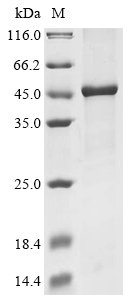

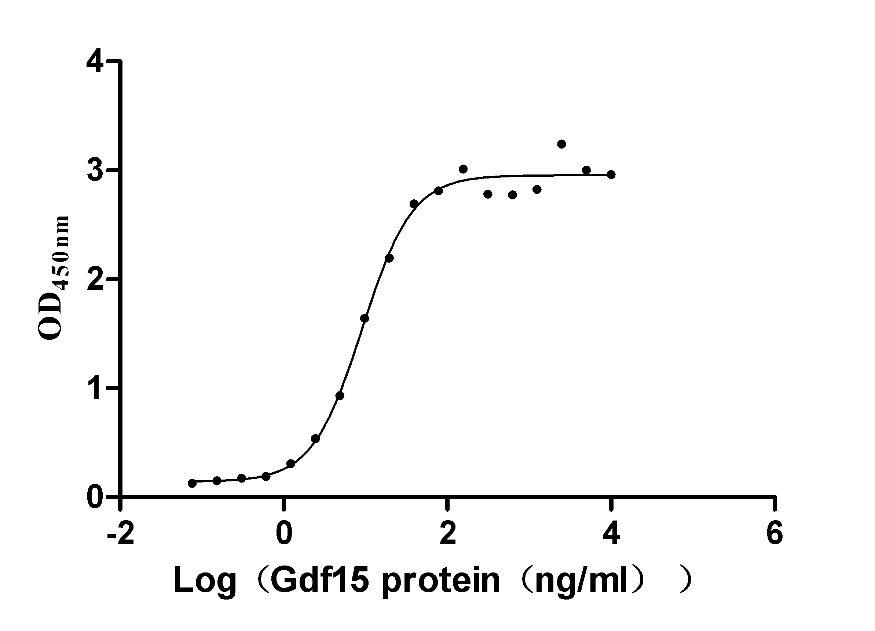
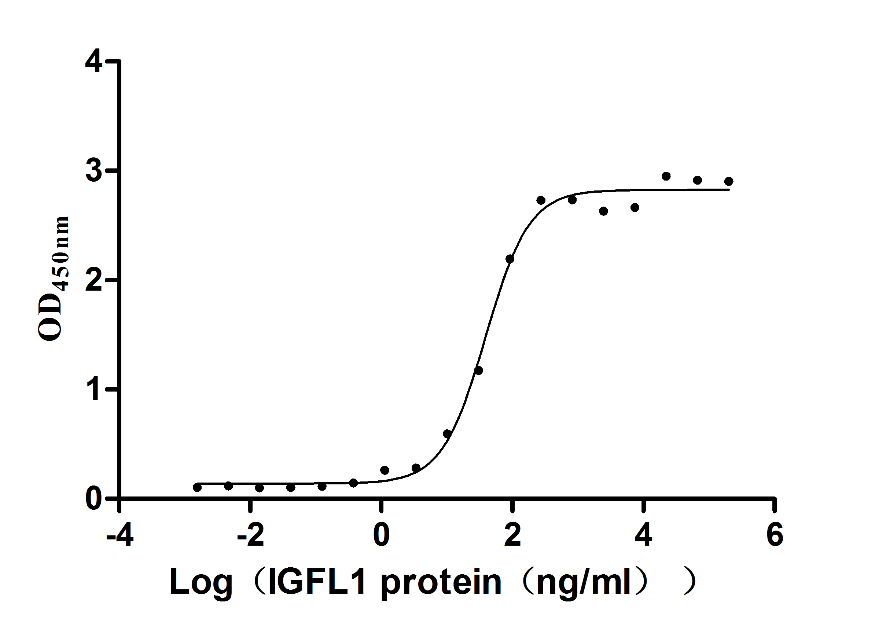

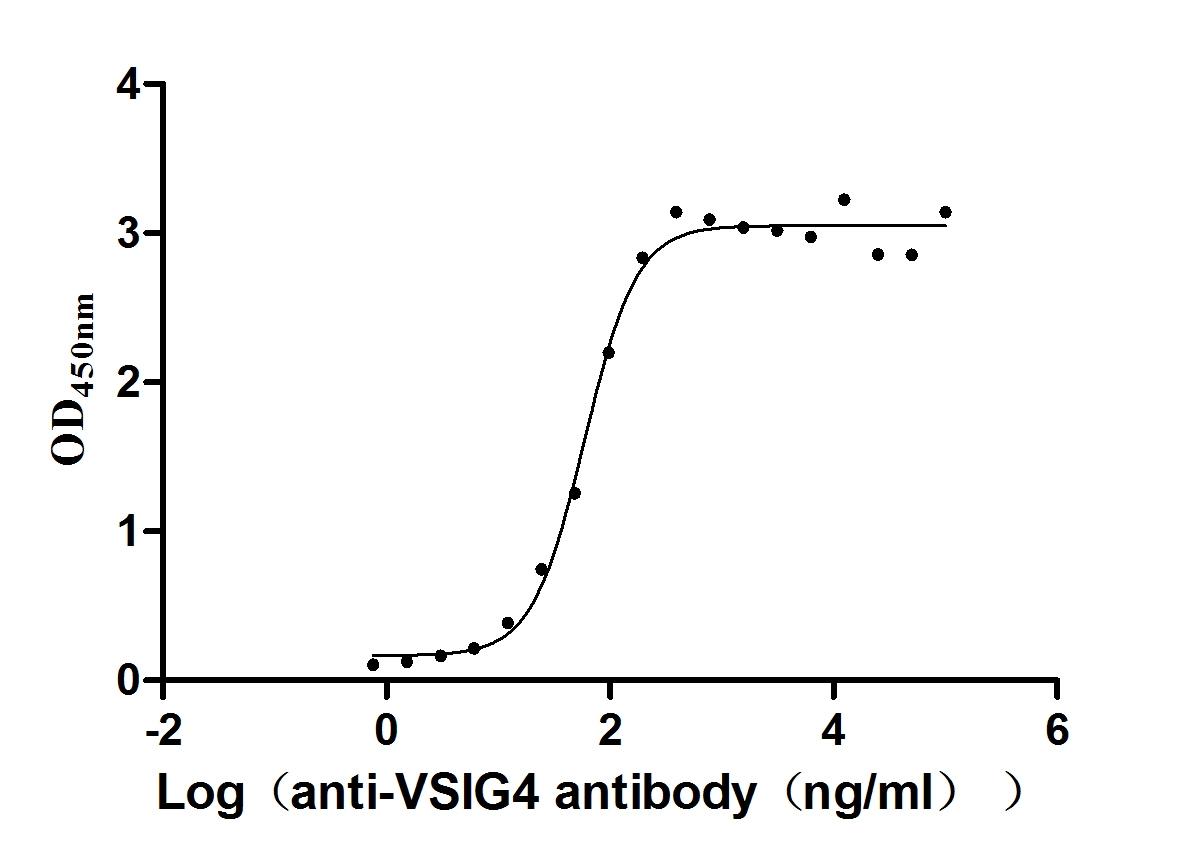
-AC1.jpg)
